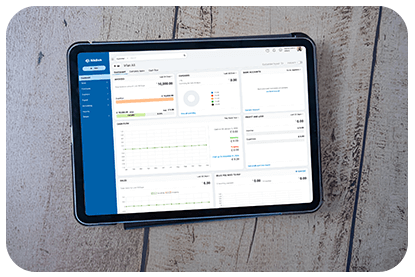19 April 2024
10 Essential Questions to Ask Your Accountant
Regular communication with an accountant is crucial for the success of your business, not just during tax season. An accountant offers strategic advice, answers tax-related questions, and keeps you informed about changes in tax laws that can impact your business decisions throughout the year.
Here are ten key questions to ask when working with an accountant to ensure your business is on the right track.
1. What Qualifications and Experience Do You Have?
It’s essential to confirm your accountant’s credentials and expertise. Make sure they have the relevant qualifications and experience to handle your business finances effectively. Look for reviews or references from other small businesses to gain confidence in their skills.
2. How Long Have You Been in Business?
Choose an accountant who understands the unique challenges faced by small businesses. An experienced accountant will help you boost profits and manage costs, ultimately supporting your business growth.
3. Can You Provide References From Small Businesses?
References from other small businesses are critical. If an accountant can’t provide these, it may be a red flag. Reliable accountants should be able to prove they have successfully helped businesses similar to yours.
To ensure smooth tax filing and financial management, ask what documentation your accountant needs. Being organized with receipts, bank statements, and invoices will save time and reduce back-and-forth communication.
5. How Can You Help Me With My Taxes?
Accountants can help you save money by identifying tax rebates and business expenses you might not have considered. They ensure you’re paying the right amount of tax and staying compliant with tax laws.
6. How Should We Communicate?
Agree on your preferred communication method. Whether it’s via email, phone calls, or meetings, ensure both you and your accountant are comfortable with the way you’ll stay in touch.
7. Can I Achieve My Financial Goals?
Ask your accountant if your financial solution goals are realistic. Even if they think you’re off track, they should provide actionable steps to improve your chances of success.
8. Am I Doing Anything Wrong Financially?
Your accountant should be honest about any mistakes you’re making. Addressing errors early can prevent bigger financial problems, saving you money and protecting your business from tax issues.
9. How Can You Help Me Prepare for Tax Season?
Avoid the stress of last-minute tax filing. A proactive accountant will help you keep your financial records organized throughout the year and advise you on any changes in tax laws that could affect your business.
10. Can You Advise on Specific Deductions?
Ask your accountant for advice on deductions that apply to your industry or unique situation. This can lead to additional tax savings.



